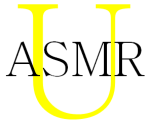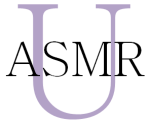 Beverley Fredborg, James Clark, and Stephen Smith have published another ASMR research study titled, “Mindfulness and ASMR.” The study was published August 7, 2018 in PeerJ.
Beverley Fredborg, James Clark, and Stephen Smith have published another ASMR research study titled, “Mindfulness and ASMR.” The study was published August 7, 2018 in PeerJ.
The goal of this study was to investigate the potential relationships between ASMR and mindfulness.
In their introduction, they provide these descriptions of mindfulness:
- “…a two-component process by which one engages in both intentional self-regulation of attention and a nonjudgmental awareness and acceptance of the present moment.”
- “…involves an openness to sensations, attentional control, emotional regulation, and resilience.”
The authors then highlight the similarities between mindfulness and ASMR:
- “…the focused attention method of mindfulness meditation requires individuals to focus on a specific external stimulus or internal thought…During ASMR experiences, individuals focus attention on an external stimulus that triggers tingling sensations.”
- “Both mindfulness and ASMR can lead to a feeling of relaxation that enhances people’s subjective well-being.”
These similarities definitely make one wonder if mindfulness is a form of ASMR, if ASMR is a form of mindfulness, or is there some other relationship?
The authors also teased out more data about ASMR and trigger preferences, age of onset, similarity to music chills, and frequency of using ASMR media to help with relaxation and sleeping.
 This is the second ASMR research study published by Dr Agnieszka Janik McErlean (Bath Spa University, UK) and Dr Michael Banissy (Goldsmiths, University of London, UK).
This is the second ASMR research study published by Dr Agnieszka Janik McErlean (Bath Spa University, UK) and Dr Michael Banissy (Goldsmiths, University of London, UK). Dr Agnieszka Janik McErlean is the lead author of the publication, “
Dr Agnieszka Janik McErlean is the lead author of the publication, “ In this podcast episode, I will be summarizing the third peer-reviewed research publication about ASMR and sharing an interview with the authors.
In this podcast episode, I will be summarizing the third peer-reviewed research publication about ASMR and sharing an interview with the authors. Researchers at the University of Winnipeg in Canada have recently published their second peer-reviewed research publication about ASMR.
Researchers at the University of Winnipeg in Canada have recently published their second peer-reviewed research publication about ASMR. Anna Zajac is an undergraduate student at Queen’s University Belfast in Northern Ireland. She is in her final year as a Psychology Major and is working as a research assistant at her university.
Anna Zajac is an undergraduate student at Queen’s University Belfast in Northern Ireland. She is in her final year as a Psychology Major and is working as a research assistant at her university.